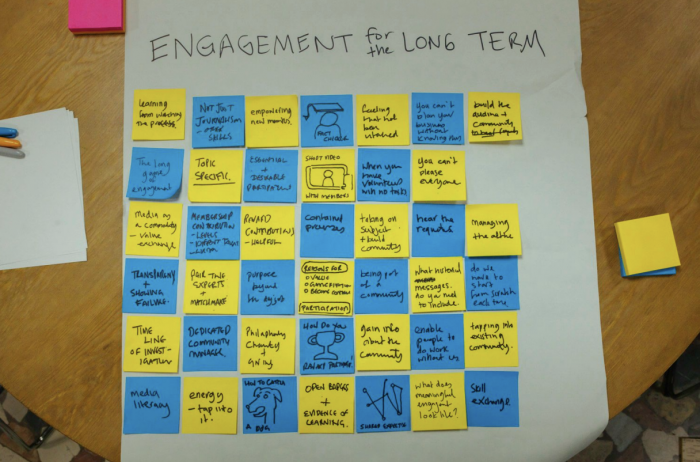
The Engaged Journalism Accelerator, boosting a dozen European media organizations’ engagement strategies, is working to change that continent’s reporting culture and compiled some recommendations for (and solid examples of) news outlets putting engagement at their core.
The accelerator’s report, compiled by Madalina Ciobanu, Kathryn Geels, and Ben Whitelaw, pulls together five recommendations from the convening of 30 engaged journalism practitioners (and includes their detailed process of developing the summit). It also highlights specific examples of European newsrooms making progress with engagement that are worthwhile to consider elsewhere.
Warning: These findings are explicitly for people who already buy into the importance of engagement journalism, the process of involving the community/audience in the reporting process from ideation to distribution. But hey, if you’re unfamiliar or undecided, here’s an explainer, some more recent highlights, and a database of 100 European outlets already putting engagement into action.
The recommendations:
Some of the examples:
Bureau Local has built a network of more than 800 members across the UK – some are journalists but most are lawyers, technologists, teachers and other members of the public. The Bureau announces a new issue they are looking into (they recently announced they were looking into the sale of public spaces by local authorities in England) then bring the data and the journalistic know-how to collaborative hack days, in person or on Slack, where they work with people in their network to dig into the information and find stories. They have also started holding regular ‘open newsrooms’ on Slack for members to solve a problem together or enable them to ask for help or offer a specific skill.
Krautreporter asks each user to fill out a profile when they register, answering five questions, including ‘what do you study?’, ‘what is your field of expertise?’ and ‘where do you have people you can contact in different countries?’, which enables them to find sources of expertise within their own member database. They also survey members regularly, with a simple question: “What is it that you don’t understand?” People are given type-forms with 160 characters to broadly outline an issue, after which they get 500 characters to flesh out their question. Krautreporter conducts the surveys on its website, as well as on Facebook and Twitter.
In June 2018, Civio published an article about the number of households in Spain who were not claiming electricity subsidies despite qualifying for it, and the risk of no longer being able to claim once the new system would be implemented in October 2018. Civio, together with the CNMC, developed a web application where users could find out if they were eligible for electricity subsidies by answering a few short questions. Civio also arranged a meeting with government representatives to communicate findings from their investigation and highlight the considerable number of people who were qualified for the subsidies but had not applied for them. In October 2018, the government announced it was going to allow people who changed to the new system before 31 December 2018 to retroactively receive the subsidies, and that electricity companies were obligated to contact all their consumers within 15 days to inform them about the required change to the new system.
Ukraine-based Tvoe Misto held an event with their community at the end of last year, inviting people to give feedback about the work of the organisation, and they heard some interesting ways in which people perceive parts of their reporting. For example public officials receive Tvoe Misto’s weekly newsletter, which is divided into topics. A participant working in the healthcare sector said that if they only see one story about healthcare in the newsletter, they see it as a KPI that their department has done something wrong, or insufficient. Indirectly, that can become a KPI for Tvoe Misto, as this means people take action on the back of content produced by the organization.
The Engaged Journalism Accelerator is funded by the News Integrity Initiative and Civil. The full report is available here.
Leave a comment